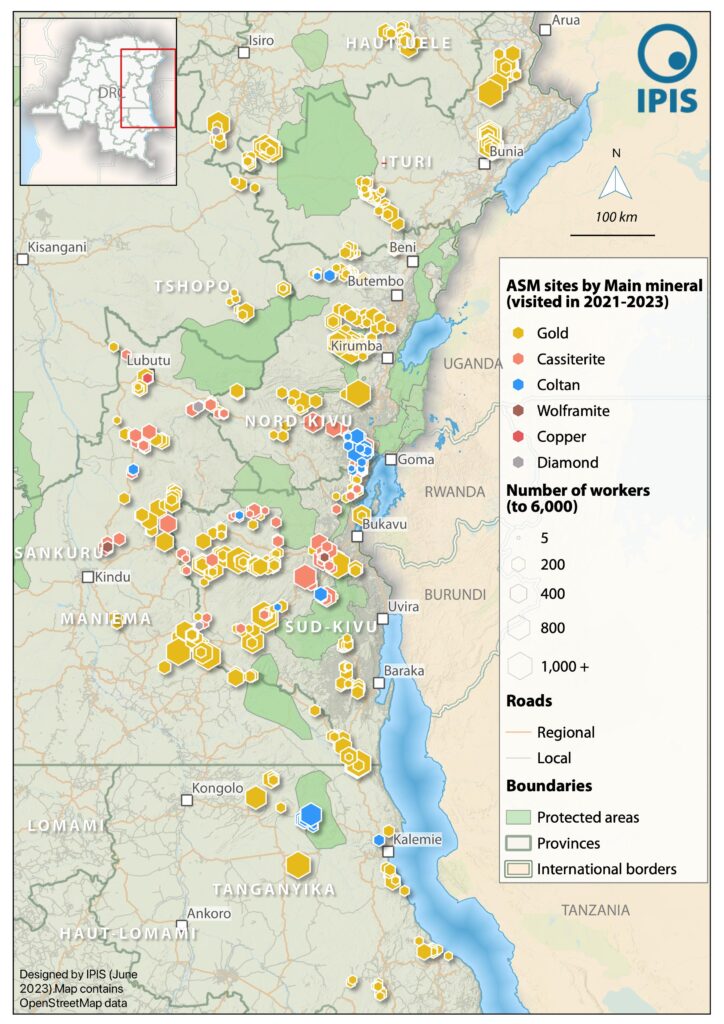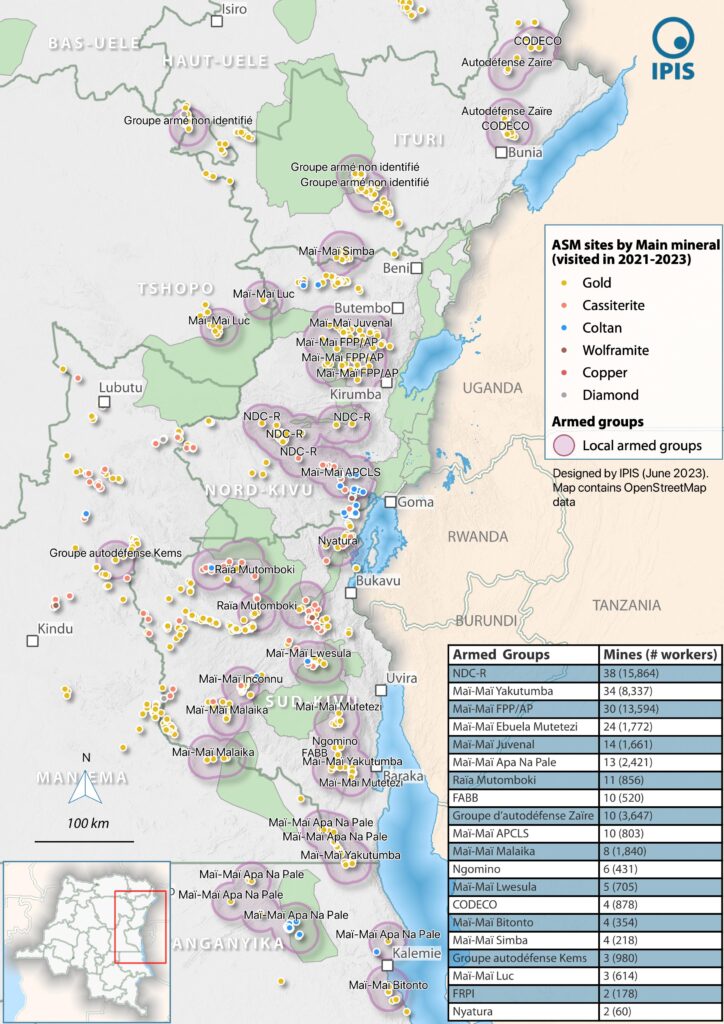Since 2009, IPIS has mapped and collected data at more than 2,800 Artisanal and Small-scale Mining (ASM) sites in the eastern Democratic Republic of the Congo (DRC). In this report, IPIS provides its 2023 update of the state of ASM in the eastern DRC, based on data from over 829 ASM sites in the eastern DRC between 2021-2023. The study analyses linkages between mining, conflict, and insecurity in ASM, and evaluates why current responsible sourcing initiatives have failed to decrease armed interference in mining, let alone positively impact security overall. The data collected for the study can be consulted through IPIS’ interactive web map and Open Data Dashboard.
The findings reveal that despite large scale armed conflict over minerals in the DRC lessening over the past twenty years, minerals remain linked to conflict. Indeed, 61% of miners in our survey suffer ‘interference’ (i.e. illegal rent-seeking) from armed actors. These include both state security actors, as well as non-state armed groups. The latter interfere at 29% of the mines visited by IPIS. Notable culprits include CODECO and Jeunesse/‘Zaïre’ (in Ituri), NDC-R and Kabidon’s FPP/AP (in North Kivu), and several Mai Mai groups in South Kivu and Tanganyika.
The largest interferer, however, is the Congolese army (FARDC). Its illicit revenue-generating practices around ASM sites impact 37% of the mines in our survey, which employ over 55,800 miners.
IPIS also identified drivers of insecurity in ASM beyond direct conflict financing and armed interference. These include the omnipresence of former rebels at mining sites, as well as tensions around unequal access to mineral resources due to discrimination (e.g. based on ethnic allegiance), and gender inequality. Additionally, an international rush for DRC minerals entails some security risks: there is a growing number of semi-industrial exploitations, who disregard legal obligations, use questionable security arrangements, instrumentalize patronage networks and undermine social cohesion.
The report demonstrates that a more integrated analysis of mining, insecurity and conflict-financing is needed if current policies aimed at limiting insecurity in the ASM sector are to succeed. This is especially true for responsible sourcing initiatives, which remain largely ineffective due to: their basis in an outdated understanding of the linkage between conflict and mineral extraction in the eastern DRC; an overreliance on underpaid state agents; the exclusionary nature of these initiatives; neglect of the socio-economic impact; (political) elite capture; and the lack of an in-depth evaluation (co-)managed by DRC stakeholders.
Supported by USAID, Integrated Land and Resource Governance (ILRG) project





